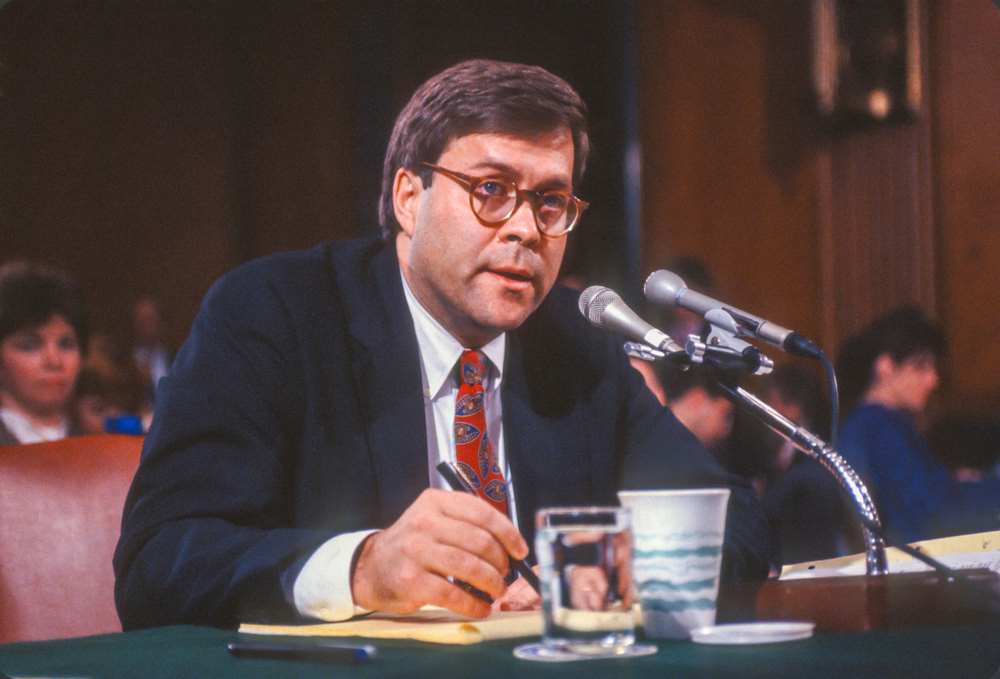Department of Justice inspector general Michael E. Horowitz, who was tasked with reviewing the origins of the FBI’s investigation into President Donald Trump and his associates, as well as the manner in which a surveillance warrant was obtained against Carter Page, a former adviser to the Trump campaign, will conclude his investigation sometime in May or June, Attorney General William Barr told congressional lawmakers Tuesday.
By: Harry Cherry
Mr. Horowitz has been probing whether the Federal Bureau of Investigation lawfully went about obtaining a warrant to surveil Mr. Page and whether it was, as Mr. Barr said on Wednesday, “adequately predicated.”
“I think spying did occur, yes. I think spying did occur,” Mr. Barr told Senator Jeanine Shaheen, Democrat from New Hampshire, on Wednesday. “The question was whether it was adequately predicated. And I’m not suggesting it wasn’t predicated. I need to explore that.
When asked to clarify his remarks, Mr. Barr said, “Unauthorized surveillance. I want to make sure there was no unauthorized surveillance.”
A spokesman for Mr. Horowitz and the Inspector General’s office declined to comment for this story. The results of Mr. Horowitz’s investigation will likely send shockwaves through the Department of Justice, one Republican aide told The Jewish Voice.
Republican lawmakers as well as Mr. Trump have long alleged that senior FBI and Department of Justice officials abused their authority while obtaining a surveillance warrant against Mr. Page, citing the fact that the bureau heavily relied upon a dossier created by ex-British spy Christopher Steele, who reportedly told officials that he disliked Mr. Trump and wanted to prevent him from being elected President.
Now that Robert S. Mueller III, the special counsel tasked with investigating Mr. Trump and his 2016 presidential campaign and their ties to Moscow, has concluded that no criminal conspiracy occurred, Republicans are claiming predicting that Mr. Horowitz’s findings will be damning, preparing to claim vindication that the Trump-Russia investigation was politicized.
“The Special Counsel’s investigation did not find that the Trump campaign or anyone associated with it conspired or coordinated with Russia in its efforts to influence the 2016 U.S. presidential election,” Mr. Barr wrote in a letter to Congress. “The investigation did not establish that members of the Trump Campaign conspired or coordinated with the Russian government in its election interference activities.”
Mr. Trump’s Republican allies in Congress have already attempted to pounce on Mr. Mueller’s findings, summarized by Mr. Barr, as evidence that allegations of collusion between Mr. Trump and Russian intelligence services were unfounded. The FBI and Department of Justice, however, relied on information other than Mr. Steele’s dossier in launching its July 2016 investigation into Mr. Trump’s key associates, citing a meeting that George Papadopoulos, a former Trump campaign volunteer who pled guilty during the course of the special counsel’s investigation to lying to the FBI, had with Joseph Mifsud, a Maltese academic at a bar in London.
Three renewal applications of the surveillance warrant against Mr. Page were ultimately granted by various federal judges — one signed by Rod J. Rosenstein, Mr. Trump’s Deputy Attorney General. That application was signed by Mr. Rosenstein in 2017 — something that has repeatedly angered Mr. Trump, as Mr. Rosenstein was appointed to his current post by him.
“Will the scathing document written about Lyin’ James Comey, by the man in charge of the case, Rod Rosenstein (who also signed the FISA Warrant), be a big part of the Report? Isn’t Rod therefore totally conflicted?” Mr. Trump tweeted in December 2018.
Mr. Trump’s allies have long argued that FBI and Justice Department officials should have disclosed to the Foreign Intelligence Surveillance Court that Mr. Steele’s dossier was indirectly funded by the Democratic party and Hillary Clinton, the 2016 Democratic nominee for President, through a law firm named Perkins Coie.





